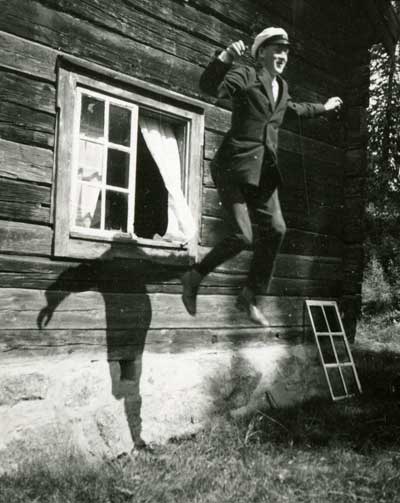With the publication of this issue of Ethnologia Europaea, the journal has taken yet another major step on a new trajectory: it has fully entered the digital age and become an online, completely open-access journal. Though access to articles had been made available online before, with an “embargo” period of three years (the “green” model), it is now a “golden” journal – much in tune with its recent 50-year anniversary (see vol. 47:1, 50 Years of Ethnologia Europaea – Readers’ Choices from Half a Century).
Our new publisher is the Open Library of Humanities (OLH), a non-profit organization funded in 2013 with the help of the Andrew W. Mellon Foundation and now supported by a sustainable business model based on Library Partnership Subsidy, in which libraries collectively support open-access publication through OLH – rather than pay individual subscription fees. OLH can hereby provide access to high-quality, peer-reviewed scholarship online without asking the authors to pay any article processing charges (APC). The support of SIEF membership dues together with a grant from The Joint Committee for Nordic research councils in the Humanities and Social Sciences (NOS-HS) covers the production costs. Thus, for our authors nothing will change – except that their work will likely reach a much larger audience. That is why we, the editors, together with our editorial board and the leadership of SIEF decided to “flip” the journal, beginning this year.
Entering the open-access community means entering a whole new realm of terminology and slang, which we are only beginning to learn. “Flipping” is one of these new metaphors: changing from a print journal to a journal available free of charge to anyone who clicks on a link. “Flip” has a dynamic, springy quality, much like the figure shown on the cover of Ethnologia Europaea 44:2 2014 that we have chosen as the thumbnail cover on the OLH platform. The young man in the picture is an (unknown) student of folklife researcher Sigurd Erixon (1888–1968), probably photographed “off-stage” during one of the many field trips to the Swedish countryside collecting information on the vanishing peasant culture in the early twentieth century (see Gustavsson 2014, 44:2). To say the journal “flipped” also makes it sound like it was a quick and easy transition for the journal – which, in some ways, it was. The technology is amazingly easy to use, even for those of us new to the game. But it also required a great investment of time and energy to prepare the application of acceptance to OLH, negotiate the transition, and most of all, financial resources to scan and upload all the articles of 50 years of back issues, which is why we would like to expressly thank the Meertens Institute in Amsterdam and the Ludwig Uhland Institute at the University of Tübingen for their contributions.
“Off-stage” picture of unknown student of folklife researcher Sigurd Erixon (1888–1968) during field research in the Swedish countryside in the early twentieth century (see Gustavsson 2014, Ethnologia Europaea 44:2). (Photo: From the Sigurd Erixon Archives, Linköping City Library/Diocesan Library, Sweden)
Our first golden open-access issue on the new platform showcases the broad range of research questions and methods in our fields: from digital emotion practices (Christoph Bareither) to migrant activism (Martin Bak Jørgensen), issues of banal sustainability (Lars Kaijser), myths around IVF in Poland (Ewa Maciejewska-Mroczek), Finnish archive practices (Kati Mikkola, Pia Olsson and Eija Stark) and memory studies (Eerika Koskinen-Koivisto and Oula Seitsonen).
As editors we are excited about the journal’s future publication avenue, and thrilled with the thought of Ethnologia Europaea becoming an easily available open-access journal! What better way to keep the journal a lively forum for presenting and discussing peer-reviewed, high-quality ethnographic research articles than going with the digital times. Blazing new trails is a risky endeavour, but we are confident that flipping the journal will not lead to its flopping as a publication project, but in fact give it much higher visibility and thus continue to attract the best scholarship in our fields. We invite you to join us in Ethnologia Europaea’s new jumpsuit; come flip with us!
